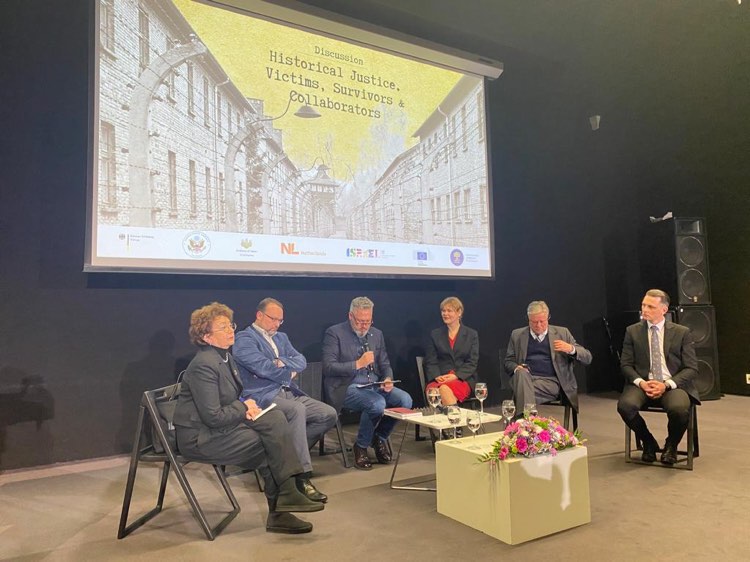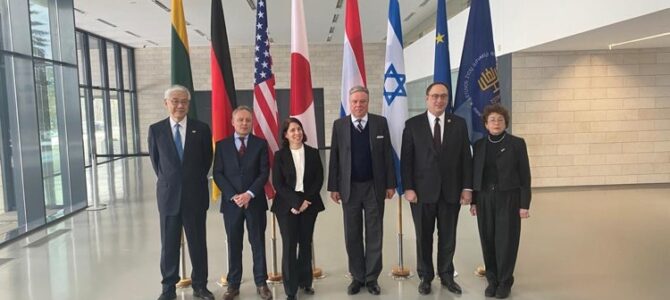The Lithuanian Jewish Community and six foreign embassies to Lithuania held an event called “Seventy-Eight Years Later: Honoring, Learning and Seeking Justice” Friday to mark International Holocaust Remembrance Day. This took the form of a panel discussion. The group who held the event included Japanese ambassador Tetsu Ozaki, Israeli ambassador Had Wittenberg Silverstein, US ambassador Robert Gilchrist, German ambassador Matthias Sonn, Dutch ambassador Tim van Gulijk, the European Commission representative in Lithuania and LJC chairwoman Faina Kuliansky.
Chairwoman Kukliansky said it is our shared responsibility to remember the past.
“Statues to specific people are treated respectfully in Lithuania, people visit them, they are maintained and aren’t forgotten. The situation is completely different with monuments to the victims of mass murder,” she noted.
“Very recently, in Kaunas, I gave an interview to Italian reporters at the site of the Garage massacre, where some of the first victims of the Holocaust in Lithuania were murdered. There is a statue there. I proposed the reporter ask some school pupils walking by from the nearby school what they knew about the Garage incident. Not even a single student was able to say what happened there, despite the fact they attend school right next to a monument commemorating the mass murder site. I think this is a classical example showing that while we can talk at length, we can adopt legislation, but there has to be the human factor, so that someone, in this case the pupils, would have their attention directed and would be told, by the school principal in this example, about this, something which should self-evident and just part of life,” Kukliansky said.
The six diplomats and the chairwoman drafted a joint resolution for the event calling for an end to Holocaust denial and distortion, more cooperation with local Lithuanian institutions to increase Holocaust education and greater partnership with the Government, Lithuanian society and Jewish communities in Lithuania to achieve these goals.
“An understanding of the tragedy of the Holocaust is necessary in our desire to preserve and strengthen the values which are the foundation of our relations, and these efforts have never been so important as they are today to the peace and security of our nations. We will continue to speak out for and defend openly the democratic values which bind us,” the joint resolution concluded.



